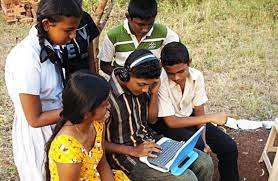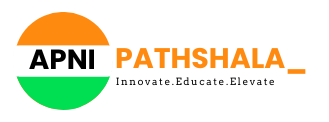Affordable Micro-Schools: Tech + Parents = Learning Revolution

Apni Pathshala is a PPP model partnership) model. In partnership with NGOs, we will help entrepreneurial mothers to set up community-based learning centers, to devise customized solutions that work for their community! These micro-entrepreneurs will run paid community-based learning pods to educate neighborhood kids using low-cost computers created by Selligion in India, loaded with free, high-quality content mapped to the syllabus. They will charge fees and thus become financially independent while educating the next generation, thus creating a sustainable positive virtuous cycle. These parents needn’t be trained teachers. They are parents who care about giving their kids the best possible education. They will provide coaching, love, and guidance. The educational content will come from a wide variety of sources, such as magnetbrains.com, diksha.gov.in, khanacademy.org, missiongyan.com, and nios.ac.in. This will be in local languages and English as well, so students are free to choose what works best for them. The goal is not to teach , but to help students to learn for themselves ! Technology plus a caring human in the loop is the magic sauce . Kids will work hard to please an adult they respect and trust. A loving , motivated mother is far more effective than a bored, mediocre school teacher because they have a lot more skin in the game ! This would be valuable for remote villages, urban slums as well as high-end gated communities. We need to go to where the students are , instead of forcing them to commute to schools. Most communities have buildings and spaces which can be used for this purpose, such as panchayat halls, community centers, places of worship and under-used school buildings. Parents will be much more holistic in their approach towards helping children learn real life skills ,rather than obsessing over completing the syllabus or scoring more marks in exams that only test memorization and not understanding. These pods will also be much more culturally friendly, because they are embedded in the community. Kids will learn far more in these neighbourhood learning centers than they would in a Govt school or a for-profit traditional school. If these micro-entrepreneurs need help, they can reach out for help, so we can guide them. Their goal is to help their students to become self-directed learners. These kids will have better social skills too because they will learn from each other. Single-room schools allow older kids to teach younger kids, and peer-to-peer learning is sticky and impactful. They will also have more opportunities to learn from the real world, because they won’t be locked up in school classrooms, listening to boring lectures. These pods could be run by retired teachers; by stay-at-home professionals; and could also use existing private school facilities to increase their impact. Attendance is optional, which means the parents who run the pod will have to work hard to keep the kids engaged to ensure great learning outcomes, which they will have to demonstrate to their neighbors who pay fees who send their kids to the pod. These parents will have to be accountable, answerable, responsible, and transparent ( unlike most school teachers today !) This model will spur creativity, rather than force everyone to follow a one-size-fits-all template, which never works. Parents will adapt the model to suit the needs and wants of their community ( for example, curriculum, content of lessons, class size, and timings ). The parents who run the pods will get paid for doing this, which means they are motivated and incentivized to provide high-quality services. They charge fees from the other parents who want a better alternative to government schools, and the well-run pods will attract more kids! Charging fees is important because it’s a great way of learning if the pod is adding value or not. If parents refuse to pay, this means the experiment is failing. The fees need to be affordable and should be monthly, so parents can pull out their kids if they aren’t happy. This will keep the micro-entrepreneurs who run these pods on their toes because they will need to focus on delighting their users. Ambitious micro-entrepreneurs can franchise their model if they want to, so this can spread even further at the grassroots level, and they can earn more. The students will use a computer to access the world’s best educational resources which are available free online. In places where the internet connection is poor, the videos will be pre-loaded onto the computer, and mapped to the class/ grade the student is studying in. In some cases, this may need to be loaded on pen drives. The number of kids who share a computer will be between 2-4 students, to optimize social learning, based on their age, and the resources available. Initially, we may need to start these as Tech-Enabled Learning Centers for after-school hours learning. Parents are used to sending kids to tuition – and to paying for this, so this will be the easiest entry point. After kids have studied what they want to ( for example, clarify doubts, or prepare for the next day’s lessons using the flipped classroom model), they will be free to explore whatever else interests them – including playing games! The easiest way to document improved learning outcomes will be to show the parents that the marks their kids get in their school exams will improve. We think this will happen because they are learning at their own pace, from the world’s best teachers! What will the timings be? Will it be after school hours only? Or will it replace school?How much space is needed to run this?How many parents are needed to run this?How will the school earn credibility?What other facilities will the center provide? A library?How many kids will be enrolled at one time? What ages will they be?What are the fees that will be charged?How do we document improved learning outcomes?Will each student have an online learning portfolio to showcase their strengths?How will the school use community facilities?How will it interact with traditional schools?Will students have to give exams?
